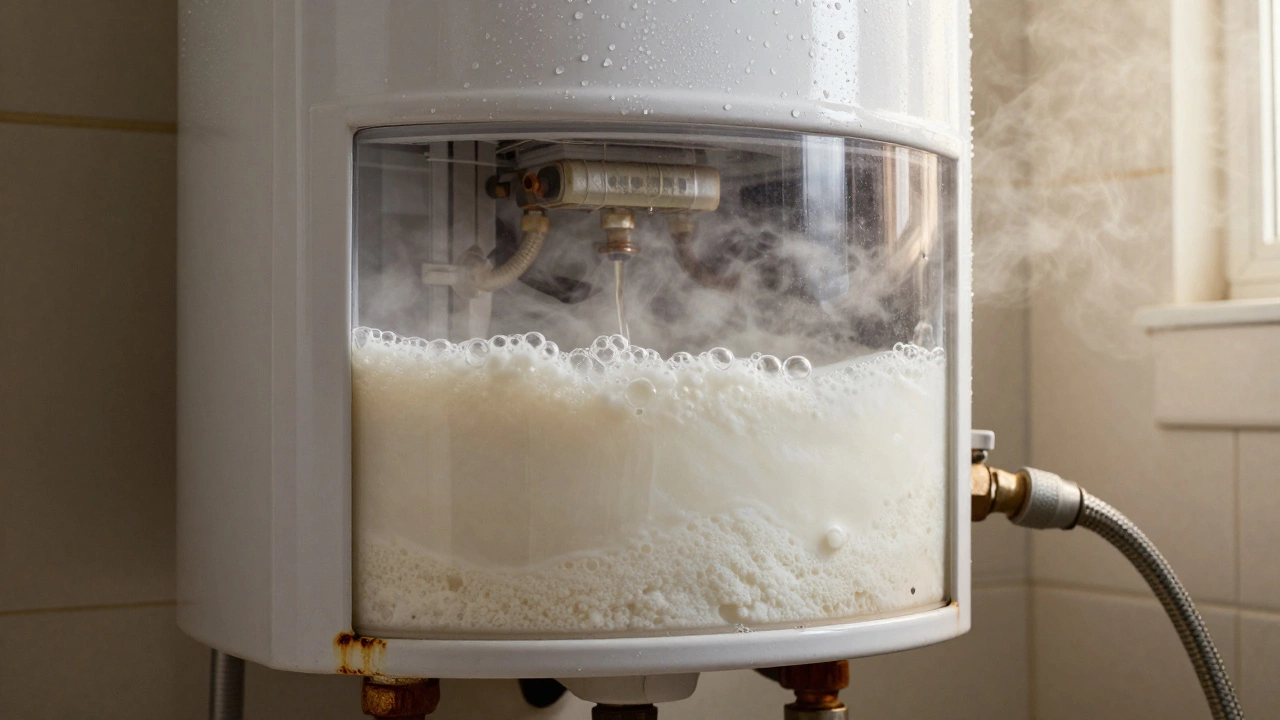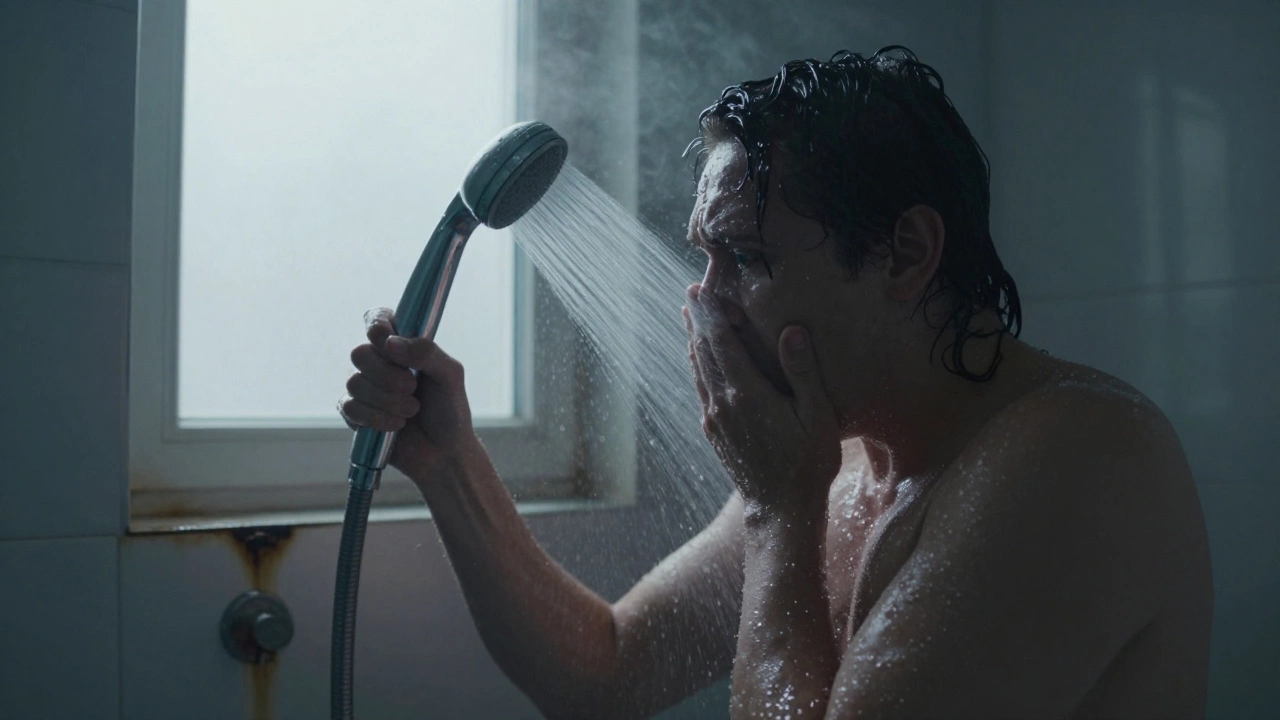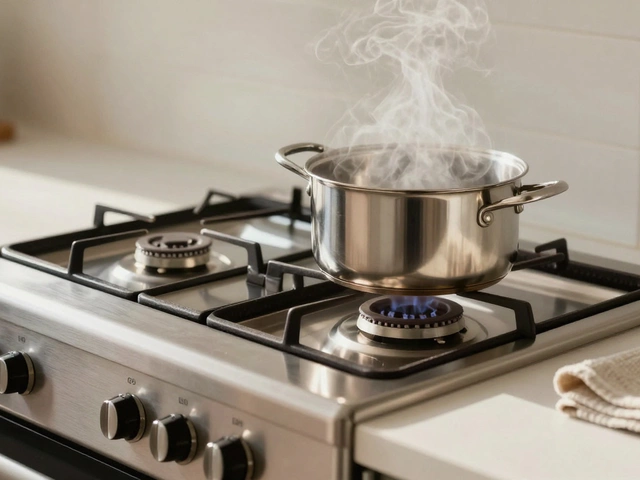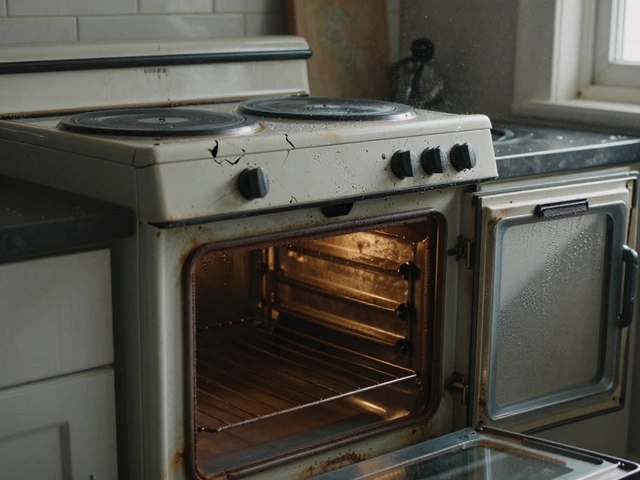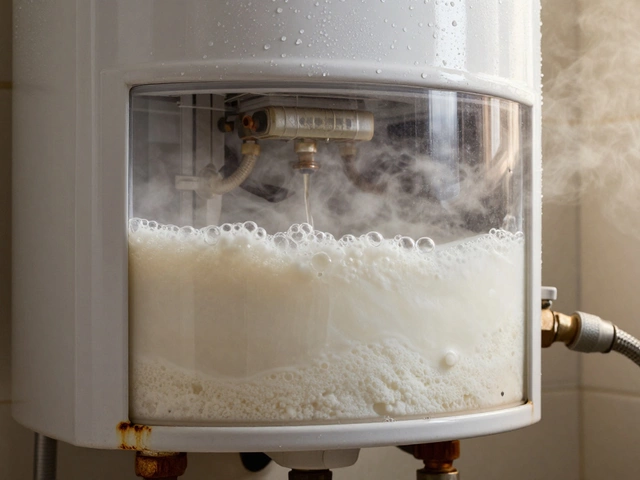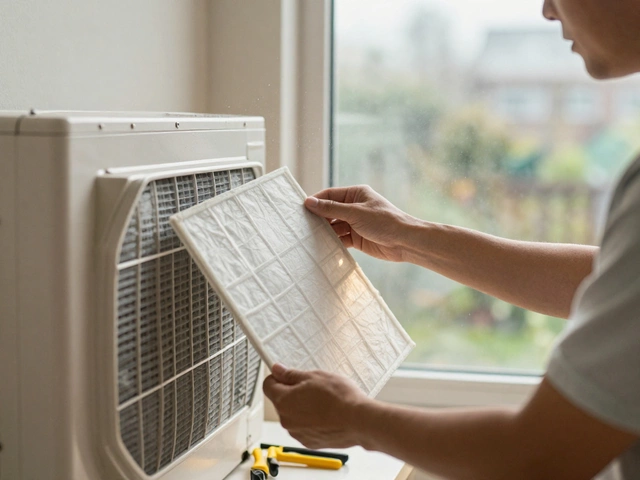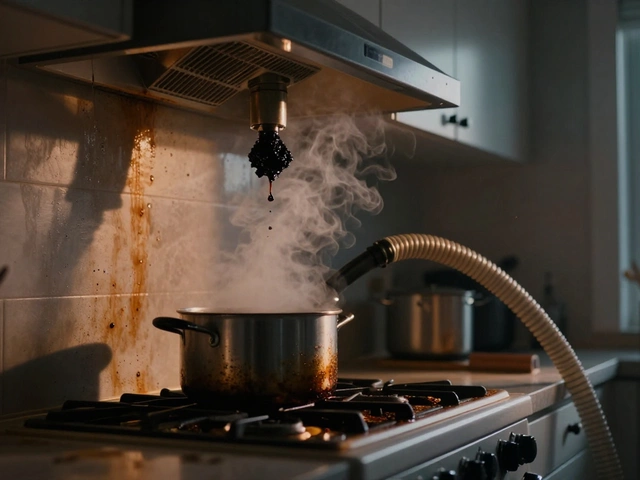Sediment Buildup in Water Heaters: Causes, Signs, and Fixes
When sediment buildup, a layer of minerals and debris that settles at the bottom of water heaters over time. Also known as tank scale, it’s one of the most common reasons water heaters lose efficiency or fail early. This isn’t just dirt—it’s hardened calcium, magnesium, and rust pulled from your water supply. Every time your heater turns on, those particles sink and stick. Over years, they form a thick blanket that traps heat, forces the element to work harder, and eventually burns out the tank lining.
It’s not just about slow hot water. If your heater’s making popping or rumbling noises, your shower suddenly goes cold halfway through, or your energy bills creep up without reason, sediment buildup is likely the culprit. You might also notice discolored water—brown or rusty—when you first turn on the tap. That’s sediment getting stirred up. And if your water heater is over 8 years old and you’ve never flushed it, you’re already behind. Most manufacturers recommend draining a few gallons every 6 to 12 months to keep it clean. Skipping this step doesn’t just cost you money—it can kill your heater faster than any other issue.
Related problems like water heater sediment often show up alongside failing elements or broken thermostats. But here’s the truth: if you clean the tank regularly, you can extend your heater’s life by 5 to 10 years. You don’t need special tools—just a garden hose and a little time. Many of the fixes in our collection walk you through exactly how to drain and flush your tank safely, whether you have an electric or gas model. We’ve also got guides on spotting early signs of damage, replacing worn parts like dip tubes, and knowing when a flush isn’t enough anymore.
What you’ll find below are real, step-by-step fixes from homeowners who’ve been there. No fluff. No theory. Just what works when your hot water starts acting up. Whether you’re dealing with a noisy tank, cold showers, or just want to avoid a surprise breakdown, the posts here give you the clear path forward.
What Is the Most Common Cause of No Hot Water?
- Alden Wilder
- Feb 9 2026
- 0 Comments
The most common cause of no hot water is sediment buildup in the tank, especially in areas with hard water. Flushing the tank yearly can prevent this issue. Other causes include pilot light failure, broken elements, or old age.
View MoreWhat Is the Most Common Problem with a Hot Water Heater?
- Alden Wilder
- Jan 11 2026
- 0 Comments
The most common problem with a hot water heater is no hot water - often caused by a failed heating element, thermostat, or pilot light. Sediment buildup and age are major contributors. Regular flushing and maintenance can extend its life and prevent costly breakdowns.
View MoreWhy Do Water Heaters Fail So Quickly? Common Causes and How to Avoid Them
- Alden Wilder
- Nov 10 2025
- 0 Comments
Water heaters often fail early due to sediment buildup, worn anode rods, and high temperatures. Learn how simple yearly maintenance can double your heater's lifespan and prevent costly leaks.
View More